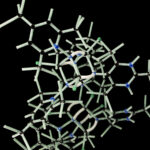World Engineers Day, celebrated every September 15, serves to appreciate engineers and their contributions to society. Engineers are professionals who invent, design, and build complex systems, structures, and materials in order to fulfill functional objectives and deliverables, keeping in mind factors such as practicality, regulation, safety, and cost. The word ‘engineer’ is derived from the Latin words ‘ingeniare’ (which means ‘to create or generate’) and ‘ingenium’ (which means ‘cleverness’). An engineer typically would require foundational qualifications of a four-year bachelor’s degree in any of several engineering disciplines — or, in certain peculiar jurisdictions, a master’s degree in an engineering discipline with an addition of four to six years of peer-reviewed professional practice, which would then result in a thesis, and then, conclusively, a passing of engineering board examinations.
History of World Engineers Day
The inventions of Thomas Savery and James Watt laid the foundation of modern mechanical engineering. The development of specialized machines, as well as the maintenance of these tools during the Industrial Revolution, gave rise to the rapid expansion of mechanical engineering in its birthplace of Britain and beyond.
The field of electrical engineering was marked and impacted by the experiments of Alessandro Volta in the 19th century. Other major contributions to the development of the discipline were the experiments of Michael Faraday, Georg Ohm, and others — as well as the groundbreaking invention of the electric motor in 1872. This field of engineering eventually became a profession late in the 19th century. Electrical engineers had built a global electric telegraph network and the first electrical engineering institutions backing this discipline were established in the United States and the United Kingdom. While it is difficult to name the first electrical engineer with certainty, it is noteworthy that Francis Ronalds was a standout individual in the field, having created the first working electric telegraph system in 1816 and documented a personal vision of the transformation of the world by electricity.
The field of electronics was founded in the late 19th century through the work of James Maxwell and Heinrich Hertz. The eventual inventions of the vacuum tube and the transistor would further bolster the development of electronics to the extent that practitioners of electrical and electronics engineering currently outnumber any other engineering specialty. Chemical engineering also developed in the 19th century, during the Industrial Revolution. With the increase in need, and invariably demand, for large-scale chemical production came the creation of an entirely new industry: chemical engineering.
World Engineers Day timeline
British engineer Thomas Savery invents the steam engine, a heat engine that performs mechanical work using steam as its working fluid.
British scientist and inventor Michael Faraday, who contributed to the study of electromagnetism and electrochemistry, is born in Newington Butts, London.
The first commercially suitable electric motor is developed by Belgian engineer Zenobe Gramme.
The field of Chemical engineering is developed and begins to blossom almost immediately.
World Engineers Day FAQs
What is the mother of engineering?
Civil engineering, being the most versatile branch of engineering, is regarded as the mother of all engineering.
Who is the father of civil engineering?
John Smeaton was the first to refer to himself as a civil engineer, as far back as the 18th century.
When was the first car made?
German inventor Karl Benz patented the three-wheeled motor car, known as the ‘Motorwagen,’ in 1886.
How to Observe World Engineers Day
Appreciate an engineer
In celebrating World Engineers Day, appreciate any engineer around you. Let them know how important they are, and that you value their contribution to the growth of society.
Watch an engineering documentary
Try watching one of the many engineering programs on T.V. “Colossal Machines” or “Superships” is a good place to start.
Try to build something
We all have a little engineering spirit in us. You can bring yours to life by building something on World Engineers Day!
5 Interesting Facts About Engineering
The first webcast inauguration was in 1997
United States President Bill Clinton's inauguration in 1997 was the first one to be webcast.
The magic of the Ferris wheel
The Ferris Wheel, originally designed and built by George Washington Gales Ferris Jr., is arguably one of the greatest engineering wonders ever.
Engineers are involved in filmmaking
Engineers are heavily involved in film production — from sound to video effects to set designs, and a lot of engineering takes place behind the scenes.
Space shuttling is courtesy of engineering
Breakthroughs in engineering are the reason we have space shuttling and can send people to the moon.
We have gadgets, thanks to engineering
Our phones, headsets, laptops, and other such gadgets are all products of various engineering processes!
Why World Engineers Day is Important
We appreciate our engineers
We love World Engineers Day because we get to appreciate our engineers. Today is just about celebrating the engineering professionals around us.
It’s an opportunity to learn how stuff works
World Engineers Day also provides an opportunity (through watching a documentary for instance) to understand how some stuff works. By watching, say, “How It’s Made,” we make a lot of exciting discoveries about how some of our favorite devices are produced and assembled.
Engineering benefits society
We love engineering because it impacts society so positively. We actually cannot do without engineering and engineers.
World Engineers Day dates
| Year | Date | Day |
|---|---|---|
| 2025 | September 15 | Monday |
| 2026 | September 15 | Tuesday |
| 2027 | September 15 | Wednesday |
| 2028 | September 15 | Friday |
| 2029 | September 15 | Saturday |
































